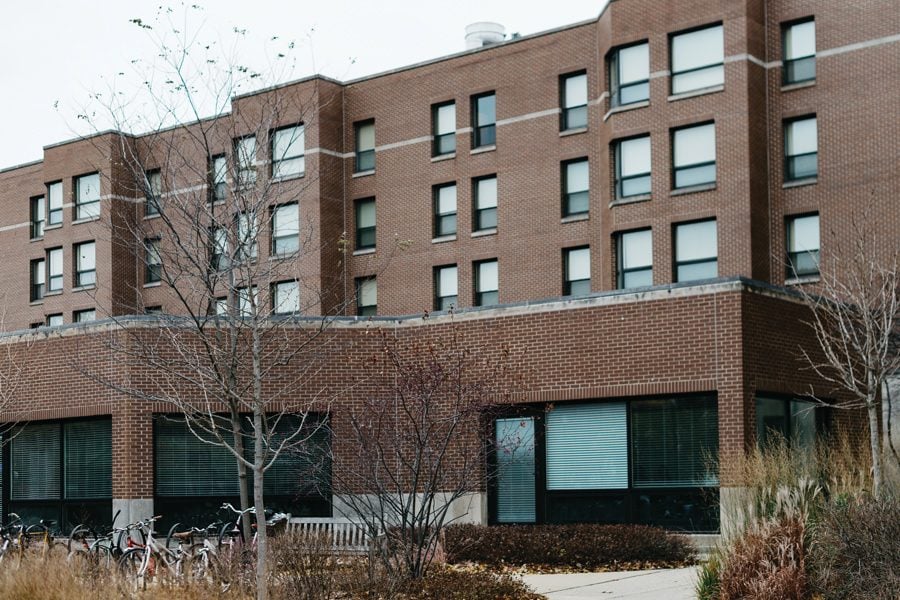With Hinman’s closing, residential services left without substance-free space
Noah Frick-Alofs / Daily Senior Staffer
1835 Hinman. While the Hinman dining hall reopened this fall, the residential part of the building is still empty.
November 29, 2018
This year, no students on Northwestern’s campus requested to live in substance-free special interest housing groups.
These special interest groups have been available to students for more than 10 years, and can exist in different buildings across campus over different periods of time. Jennifer Luttig-Komrosky, executive director of residential services, said typically some students request every year to live in substance free dorms, but that these housing options are generally only available when students ask for them. The most popular special interest group on campus is gender-open housing.
In the past, 1835 Hinman served as the University’s substance free housing, but the dorm has been closed for almost a year for major renovations.
Weinberg junior Maria Nasser said she thinks it is important to ensure students who prefer to remain substance-free can find spaces to do so.
“Obviously there’s lots of opportunities for people to partake in substances and stuff like that on campus,” Nasser said, “If you want an environment that’s devoid of that, that’s something that’s really important. Everybody should have the opportunity to surround themselves with people that have similar values that they do.”
Luttig-Komrosky said if students ever feel uncomfortable or have suggestions about their living arrangements, they can submit a request to Residential Services. Some have expressed interest in co-curricular events with faculty, Luttig-Komrosky said, and she is hopeful that dorms like Hinman will be able to sponsor these events in the future.
With the reopening of Hinman’s dining hall this fall, Northwestern is officially halfway through its $500 million dollar housing master plan.
The plan aims to accommodate the new two-year live-in requirement and improve students’ overall housing experiences — Hinman is the latest residential hall closed for renovations, and as of now, there is no projected completion date for the dorm’s development.
However, the school’s budget deficit may impact the plan, as Luttig-Komrosky said Residential Services is evaluating the situation to ensure the University is ready to move forward. It is unclear when the next phase of the plan will begin, but Luttig-Komrosky said to expect an announcement beforehand.
Nasser lived in Hinman during her freshman year, and said the dorm was definitely in need of some work.
“Everything was really old and worn down,” said Nasser. “When you’d look at it compared to some of the other dorms on campus it clearly stood out.”
The housing master plan is expected to be completed in 2025, according to the Division of Student Affairs website. All of the existing dorms and dining halls on campus will be renovated, and several new residence halls will be constructed.
Bienen junior Kira Newell also lived in Hinman as a first-year and said the building was notorious for heating problems.
“Either everything was way too hot and students were sleeping in the lounges, or one time they tried to fix the heating issue and they broke it, and then it was like 30 degrees,” she said. “And then there were a couple instances of holes in the walls, and sometimes the hot water would stop working.”
Though Hinman is the major construction project on campus at the moment, Luttig-Komrosky said students can also look forward to Elder dining hall reopening in Winter Quarter, and other general improvements across residence halls.
“Every year we do renovation projects to residence halls over the summer months to make sure that all the residence halls get refreshed during the master plan,” she said. “Maybe that’s new flooring, new paint, new furniture or by updating classrooms, but it’s definitely something that students can look forward to.”



